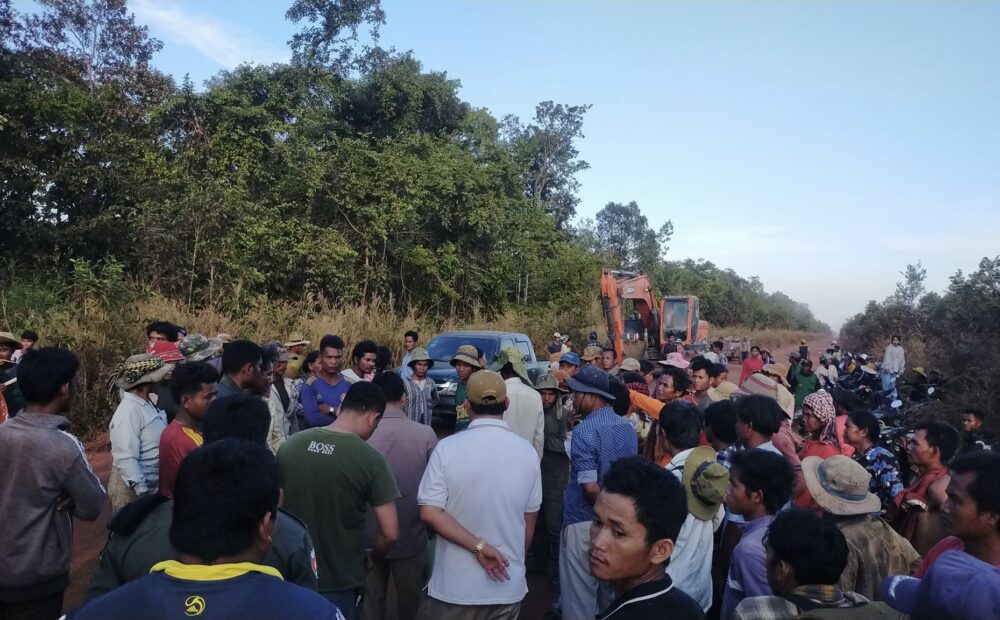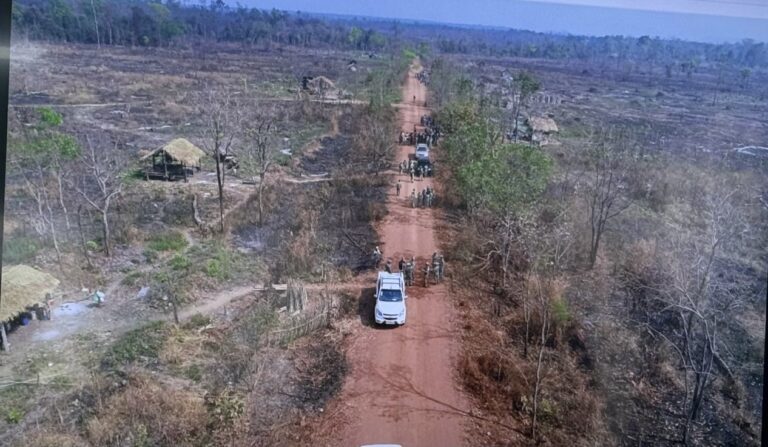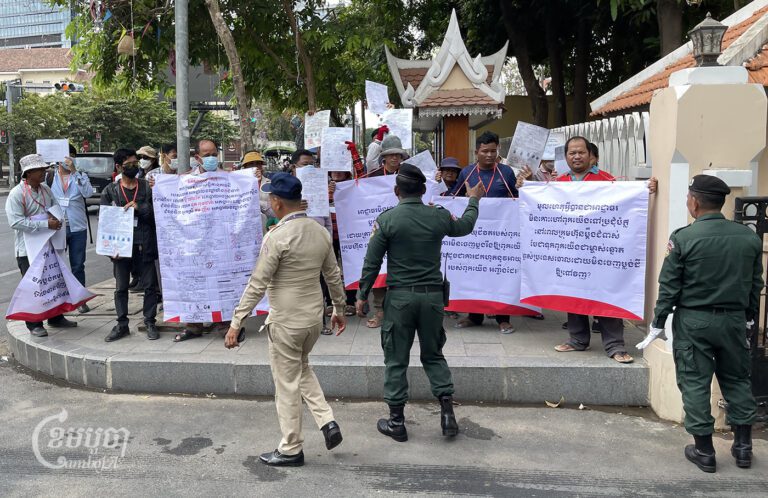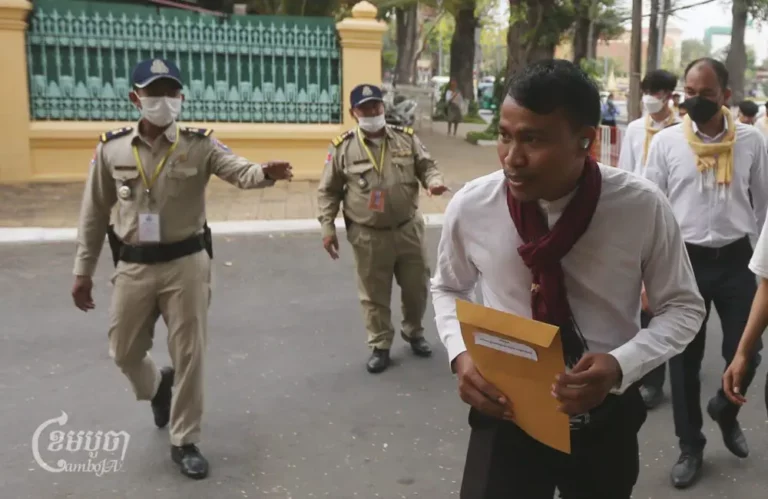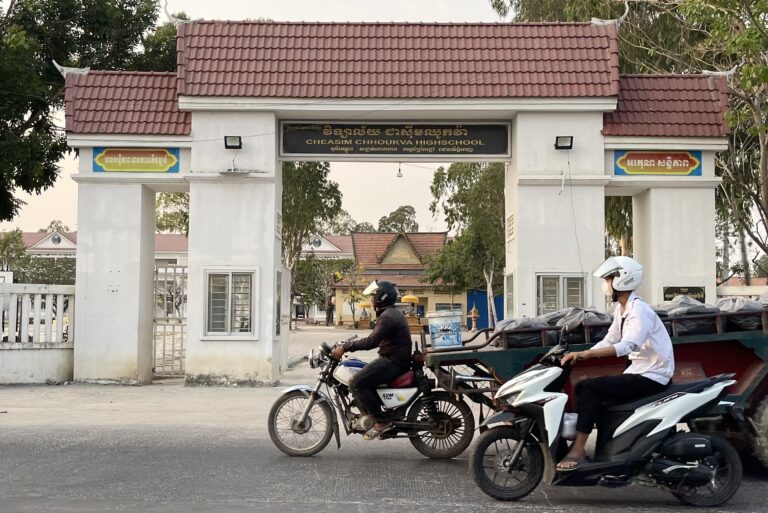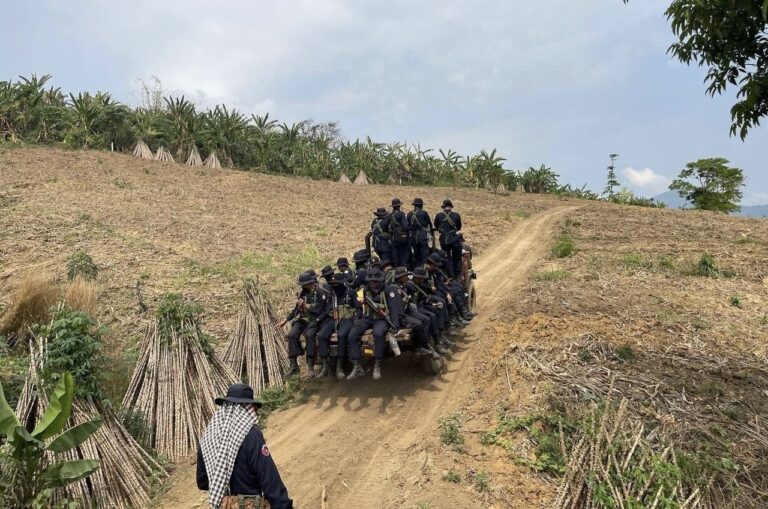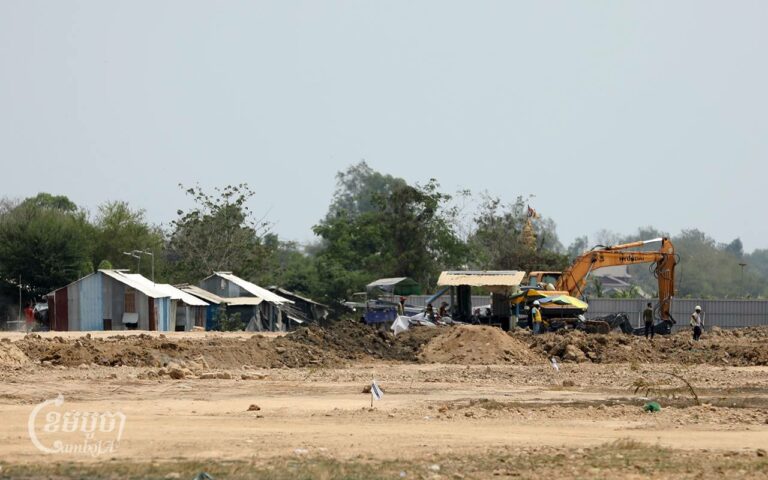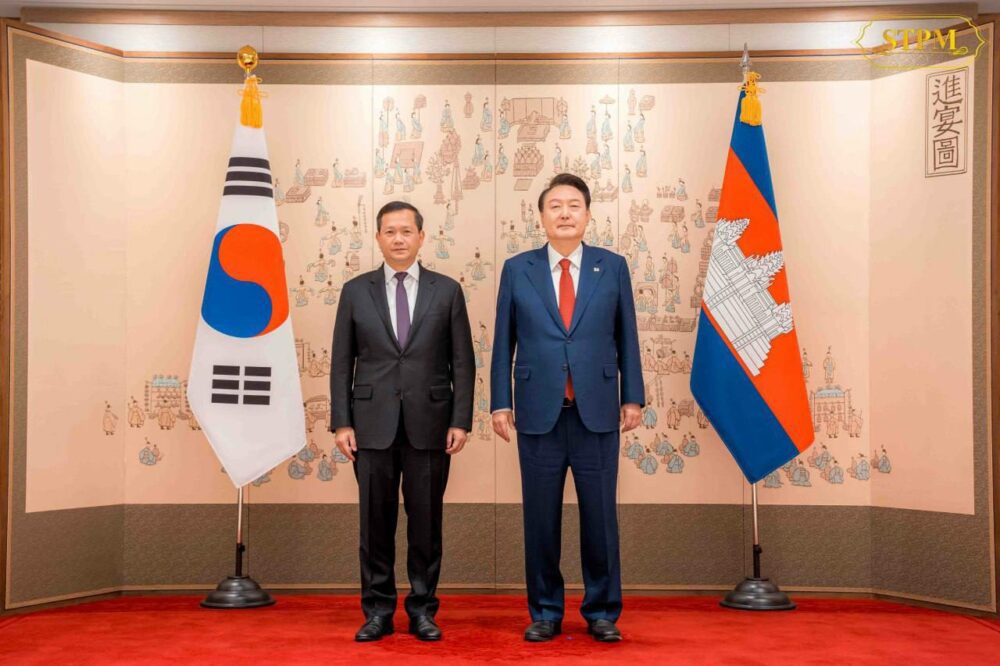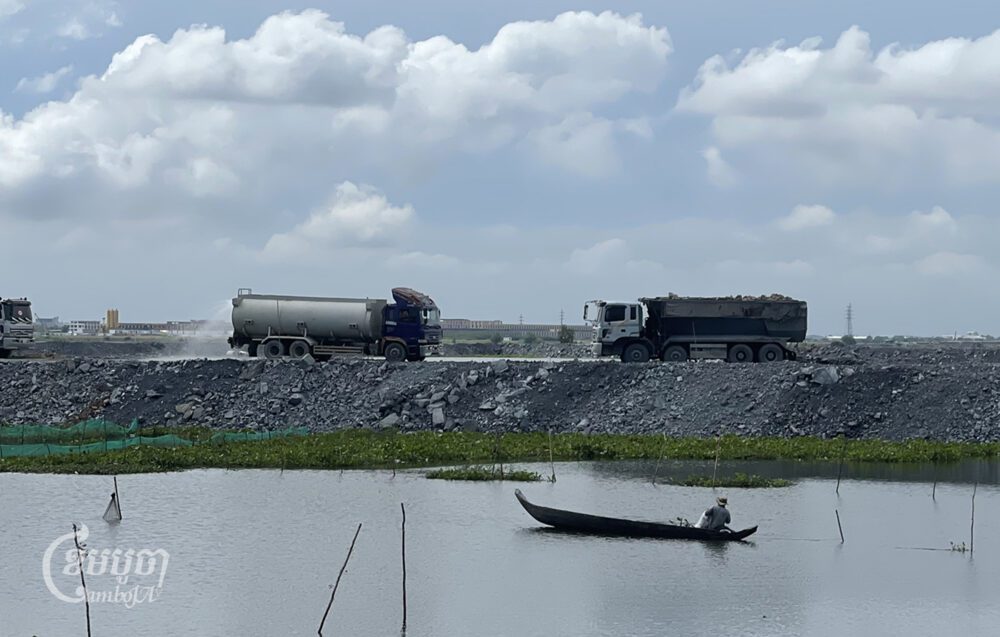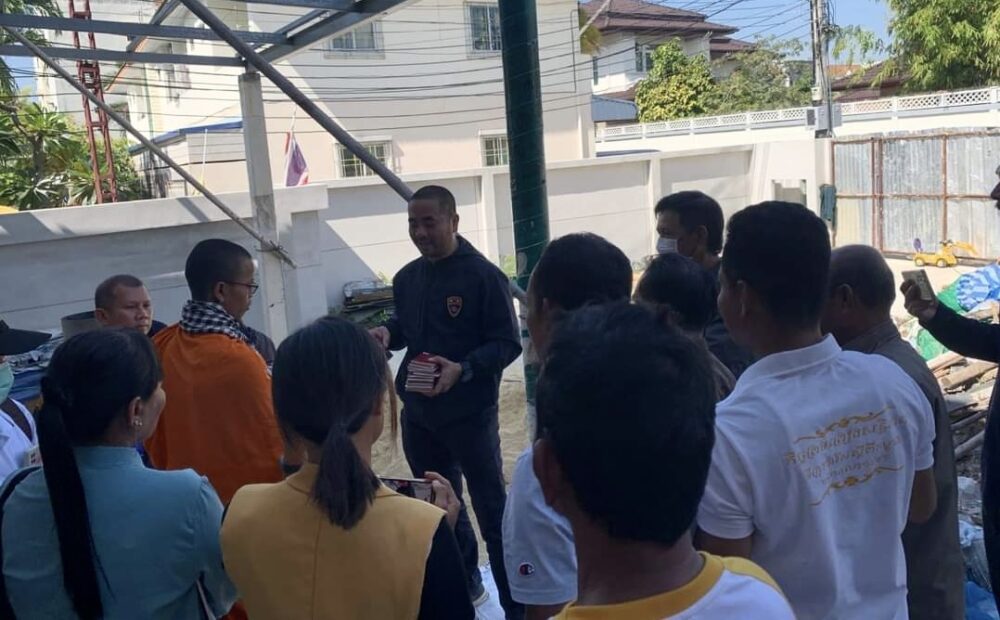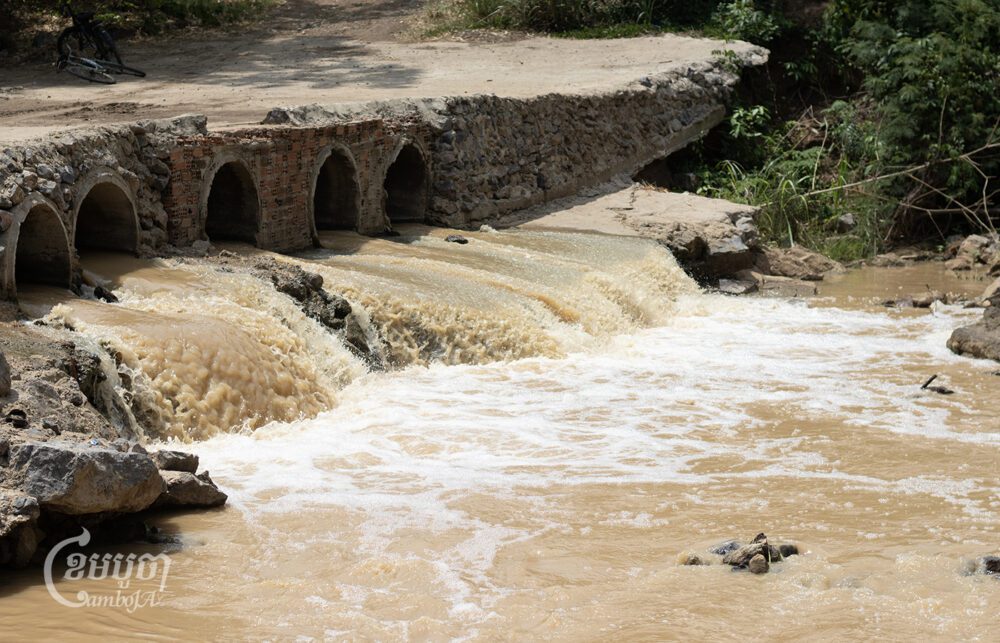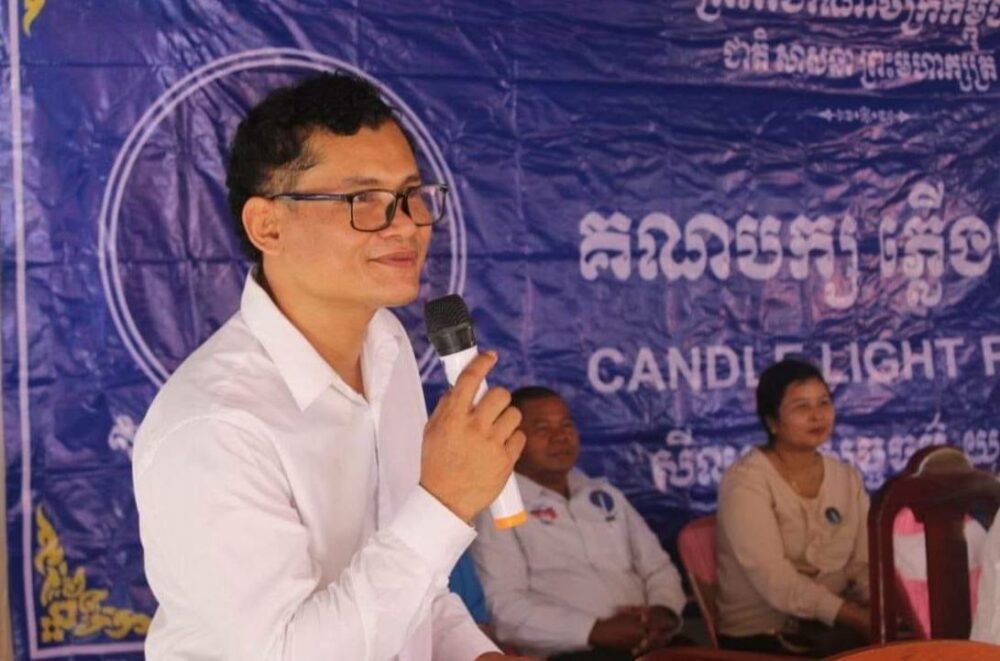Nearly 200 Kuy indigenous people from Dang Phlet and Narong villages in Preah Vihear province’s Chheb district gathered to halt an excavator from razing their traditional land or “customary land”, as it is known, which has been cultivated on for many generations.
“We are only demanding one part of the land. Other than this, they can take wherever else they want but avoid causing any destruction to our community,” So Khin, an indigenous Kuy commune resident in Dang Phlet said.
Khin told CamboJA that on December 10, villagers came upon an excavator on their community land, which they believed was there to clear the area. But, the villagers are uncertain as to who owns the excavator or the company behind the alleged land clearing.
“We do not know whose it is [the excavator]. No one is willing to tell us, not even the authorities,” Khin claimed.
“People protested to preserve their land for the next generation and not to lose it to outsiders,” he said. “There might be an outsider attempting to take over the land as the land is fertile and they see a prospect in cultivating viable crops.”
In addition to this issue, Khin expressed indignation at the alleged incapacity of the authorities to uphold the law. As of now, the community still does have collective land title to safeguard the land, thus Khin is unclear whether future injunctions would be issued to completely expel other encroachments.
“People want to preserve their customary land for their children. Moreover, over the years I notice that the authorities seem to be neglecting the mapping of our reserved land,” he told CamboJA. Due to the absence of a collective title, the community continues to fight against encroachers who aim to grab their land.
“It is becoming more difficult to acquire a collective title for the whole community from relevant authorities. They seem to be inapproachable, even encouraging people not to protest against the company coming for development.”
Late August, a traditional ceremony called “curse ceremony” was conducted where food and drinks were offered to the spirits based on the belief that they would “punish powerful people and land encroachers, including department of environment officials”, who might be violating their land rights.
Meanwhile, provincial governor Kim Rithy told CamboJA on December 12 that he has received information about the case and is working to find a solution. “This case is being resolved. The deputy governor is in charge of it.”
Vath Paranin, deputy governor of Preah Vihear province, could not be reached for comment.
At the same time, Song Chan Socheat, director of the Preah Vihear Provincial Department of Environment, told CamboJA that his department is working on the issue. “I am aware of this and the department is working on it.”

Phav Chhoeun, Dang Phlet village chief told CamboJA that the area that was to be cleared is not part of Kuy people’s community land but forest land where the Environment Ministry has control. A company has been granted economic land concession for agro-industrial plantation. However, Chhoeun claimed that he does not know the name of the concessionaire and whether it has met the requirements to operate outside community protected areas.
“It is a wildlife sanctuary which [the Environment Ministry] took control of in 2018. People were not allowed to farm [there]. The company is entitled to use it for industrial-agriculture [purpose],” he said. “They have an agreement with the ministry to develop 124 hectares.”
Chhoeun said the community is not aware that the land is not theirs but state land. Because they believe it is theirs, they are protesting to “get that land back”.
Another Kuy resident from Chheb II commune, Som Nay and a few others said indigenous peoples have suffered ever since the “ministry arrived in the area in 2018”. The residents mentioned that they have been using the land since before the protected area was designated in 2016.
A sub-degree to designate Prae Ondong Dangphlet, a community protected area (CPA) inside Chheb Wildlife Sanctuary covering 2,428 hectares was signed on August 5, 2019 by then-Environment Minister Say Sam Al. The goal was to improve the local population’s standard of living and increase their involvement in the sustainable management of natural resources.
On this notion, Chhoeun asserted that Kuy indigenous people still have their farmland and can harvest forest products.
Back at Dang Phlet, Nay said the community has not obtained a full solution, only mutually agreeing that the owner of the excavator does not return to the community’s customary land. It is understood that the agreement was signed between the authorities on behalf of the community and the excavator company, although the people do not have a copy of the letter.
“There’s no specific solution to the problem yet. We’ve only signed an accord with the excavator owner not to do more work in our community forest,” Nay told CamboJA, reiterating that they are in the dark as to who is behind the attempted land clearing. The authorities have said the same to him.
Echoing Khin, Nay expressed concern that not possessing a collective title challenges the community’s ability to form legal safeguards to preserve their customary land. He blamed it on government red tape, noting that the pro cess is onerous amid apathy among the authorities to help native communities.
“The community wants the collective title so that they can demarcate the land and have complete jurisdiction [over it],” Nay said. “However, they don’t have a basic understanding of how to obtain that [the title], its process and who can help them. The authorities have yet to step in [to help].”
Sub-decree 245 signed by then Prime Minister Hun Sen, instructed three ministries – Environment, Agriculture, Forestry and Fisheries, and Land Management, Urban Planning and Construction – to work with local authorities to grant land titles to people, who had occupied agricultural land within protected areas “for a long time”.
Additionally, the 2001 Land Law sets out a national legal framework formalizing customary land ownership of indigenous people, which allows them to obtain communal land titles, and safeguard their rights to use and administer those properties until full ownership is recognized.
But the titling procedure is onerous and drawn-out. Indigenous people have expressed concern about the time it takes to acquire a communal land title.
Am Sam Ath, operation director of rights group Licadho, said indigenous communities possess special protection rights to safeguard their land and territories as well as the right to maintain, control, protect and develop their culture.
“The right to protect their tradition, customs, beliefs, lands and culture must be recognized by the government,” Sam Ath told CamboJA.
In view of the land problem in the two villages, he said the local authorities should offer solutions to the affected people. “When the land is encroached upon, it not only affects their livelihood, but we are also concerned that it could lead to the loss of indigenous identity in the future,” he added.


